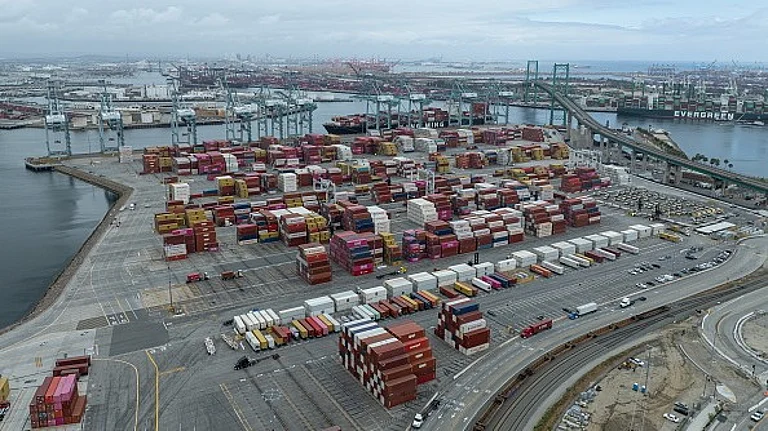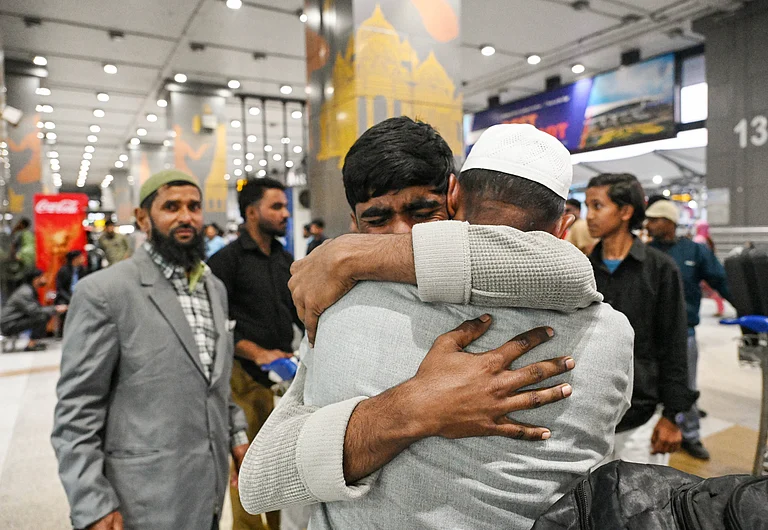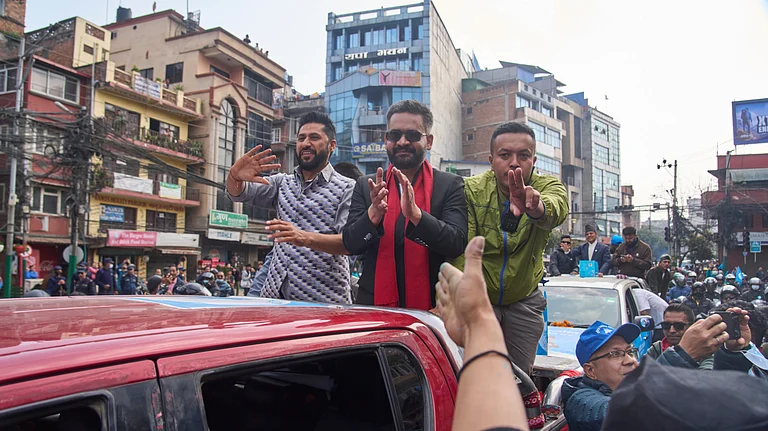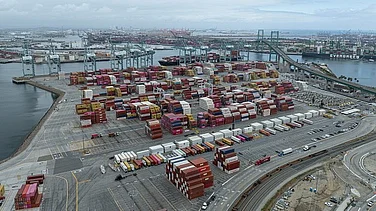At a New Year’s Day speech in Calcutta (Kolkata) in 1952, then prime minister, Jawaharlal Nehru, claimed that Kashmir’s accession in 1947 was testimony to India’s secularism. “There can be no greater vindication of… our Constitution than that we have drawn the people of Kashmir towards us,” he said. “But just imagine what would have happened in Kashmir if Jan Sangh or any other communal party had been at the helm of affairs.”
Seven decades later, Nehru’s utopian vision of the relationship between Muslim-majority Kashmir and the rest of Hindu-majority India seems to be under strain, following the decision of Prime Minister, Narendra Modi’s, government to abrogate Article 370 of the Indian Constitution on August 5, 2019. Kashmiri politicians—including former chief ministers Omar Abdullah and Mehbooba Mufti—have described the move as a “bulldozing of India’s secular and democratic” framework. The BJP, however, argues that Article 370 was not a bulwark of secularism in the country, but a tool of oppression for Indian citizens.
Even as the passionate debates continue over Kashmir’s current status, it is only by looking at its byzantine post-Independence history that one might make some sense of the multiple forces at work.
A byzantine history
At the time of Independence in 1947, India and Pakistan had a total of 565 princely states, most of which were small principalities without any army or proper administration. Kashmir, however, was one of the larger princely states with a population of 4 million, according to the 1941 Census. Like Hyderabad in the south, its ruler was allowed the highest 21-gun salute. While the Hindu Dogra family had ruled Kashmir since 1846, much of its population was Muslim.
Both India and Pakistan laid claim to the whole of Kashmir, and the Dogra ruler Hari Singh acceded to the former. This led to the first war between India and Pakistan over Kashmir in 1947-48. On January 1, 1949, a formal Line of Control was established, with both India and Pakistan controlling different parts of Kashmir. However, even after this agreement, both nations have fought at least two major conflicts—in 1965 and 1999—and several minor ones over the region. Since the early 1990s, a Pakistan-backed separatist movement has fought with Indian armed forces in the region, making it one of the most militarised zones in the world.
Article 370 of the Indian Constitution, which was the tool of Kashmir’s accession to India, allowed it to have a separate constitution, a state flag, and autonomy in internal administration. It also allowed special privileges to permanent residents of the state such as exclusive property rights and access to government education and jobs.
Sheikh Abdullah, who served as the first prime minister of the state from 1947 to 1953, argued in its Constituent Assembly that he preferred India over Pakistan because it was a secular and democratic republic. On October 17, 1950, Abdullah’s government enacted The Big Landed Estates Abolition Act, 1950, and declared that it would liquidate large landholdings in the state and redistribute land among farmers.
According to contemporary data, 22 lakh acres of land in the state belonged either to the royal family or the aristocrats. Historian Mohammad Yousuf Taing, in his biography of Abdullah, claims that the law changed the fabric of Kashmiri society. About 1.6 lakh acres of land in Kashmir and 3.1 acres of land in Jammu were re-distributed and 87 per cent of the Kashmiri population benefitted from it. In 1952, the monarchy in Kashmir was abolished.
“Now, Hindu communal parties like the Jan Sangh and the Rashtriya Swayamsevak Sangh and another party called the Jammu Praja Party have launched an agitation against the Sheikh Abdullah government,” Nehru said in his 1952 speech. “They abuse him and want the old maharaja to come back.”
Despite being roiled by decades of internal politics and a violent separatist movement, Article 370 was considered by many Kashmiris as irrevocable. Addressing the Jammu and Kashmir Assembly in 2000, Abdullah’s son and former chief minister of the state, Farooq Abdullah, said: “At this sensitive moment we want to remind the Government of India that the people of the state had joined the Indian Union on the basis of some principles. The constitutional relationship under Article 370 of the Indian Constitution provides stability.”
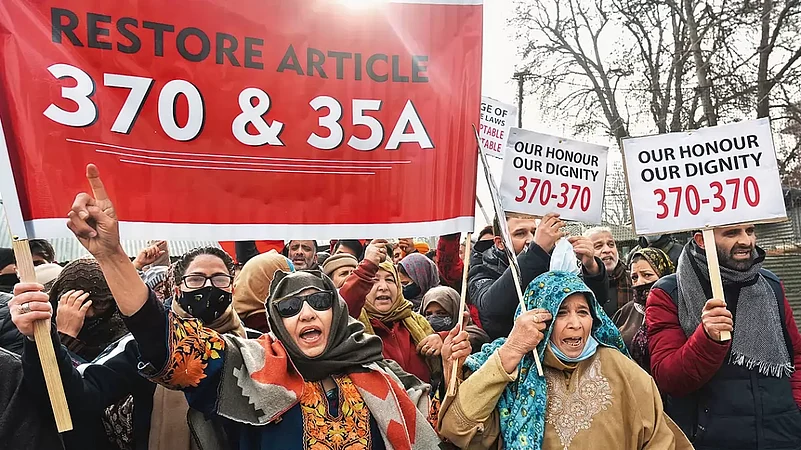
Post-370 Kashmir
On August 5, 2019, Home Minister Amit Shah introduced The Jammu and Kashmir Reorganisation Bill, 2019, in the Rajya Sabha, where it was passed immediately. The Lok Sabha passed it the next day and it received the President’s assent on August 9, 2019. It abolished Kashmir’s autonomy and abolished its Legislative Council. The Act also divided the state into two Union Territories—Jammu and Kashmir, which will be governed by a Legislative Assembly, and Ladakh, which will be administered by a Lieutenant Governor.
In the run-up to the abrogation of Article 370, the Indian government enforced a communications blackout in the state that lasted five months. The presence of the army and security forces in the region also increased significantly to prevent terrorist activity. Several senior politicians such as former chief minister Farooq Abdullah, Omar Abdullah, and Mehbooba Mufti were placed under house arrest. The Indian government defended its actions by claiming that its decision would allow Jammu and Kashmir’s residents to access privileges available to other Indians such as reservation, the Right to Education, and the Right to Information.
On October 20, 2020, several political parties—including rivals such as the Jammu & Kashmir National Conference (JKNC) and the Jammu & Kashmir People’s Democratic Party (JKPDP)—along with the Communist Party of India (Marxist) ( CPM), and the Jammu & Kashmir Awami National Conference founded the People’s Alliance for Gupkar Declaration. This alliance aims to restore Kashmir’s special status. Farooq Abdullah is the current president.
The elections to the Union Territory of Jammu and Kashmir could be held in 2023.
Hopes of democracy
Kashmiri politicians continue to be deeply critical of the abrogation of Article 370. In January this year, Omar Abdullah said: “You say that Jammu and Kashmir are integral parts of India and they cannot be disintegrated from it. Then you cannot remove the basis (Article 370) on which it had become an integral part of the country.”
Similarly, Mehbooba Mufti says, “When we ask for the restoration of Article 370, why does the BJP (Bharatiya Janata Party) get angry? Should we ask Pakistan to restore Article 370? This special position to Jammu and Kashmir was not given by the Constitution of Pakistan. It was not given by the Chinese. We have entered into accession with India and the people of India on certain conditions. You broke the conditions associated with the accession and accession itself.”
The BJP, however, argues that Article 370 had nothing to do with secularism. “Instead, it was an instrument of oppression and discrimination against Indian citizens,” says senior BJP leader Nirmal Singh. “India’s mindset is secular. We believe in the equality of all religions. India was never a theocratic state in its 5,000-year-old history. Our constitution gives equal rights to all. Article 370 never symbolised Indian secularism. It was a sign of communalism.”
Kashmiri leaders, however, demur. Iltija Mufti, a senior leader of the JKPDP, and Mehbooba Mufti’s daughter, says, “Why did they take this unilateral decision to abrogate Article 370 in J&K? The precise reason is that J&K is the only Muslim-majority state in the country. They don’t like it. The BJP wants to send a message to its constituencies that they are out to obliterate the Muslim majority in J&K.”
The BJP has often advocated the cause of the Kashmiri pandit minority in Kashmir-who were forced to flee their homes in early 1990s.
CPM leader, Mohammed Yousuf Tarigami, who also serves as the spokesperson for the Gupkar Alliance, also says the abrogation of Article 370 was an attempt to target the Muslim population of the state. “It has weakened federalism and the secular fabric of the country,” he adds.
BJP leader, Singh, however, denies any attempt at demographic re-engineering in Kashmir. “Other hill states like Himachal Pradesh, Uttarakhand, and Sikkim have domicile laws,” he says. “They haven’t faced any demographic change. Neither will Jammu and Kashmir.” He adds that it is ironic for advocates of secularism to preserve privileges and exclusive rights for themselves.
(This appeared in the print edition as "The Secular History of Kashmir")
Naseer Ganai in Srinagar



